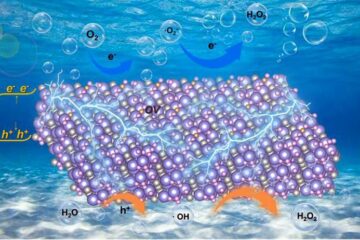Another boost for stem cell research

University of New South Wales (UNSW) academics have proven that tumours can be prevented from forming when embryonic stem cells are transplanted.
“Whilst embryonic stem cells have great potential to deliver therapies for disorders, such as diabetes, a fear has been that they will form tumours because of the presence of undifferentiated cells,” said UNSW Professor Bernie Tuch of the Diabetes Transplant Unit, who led the team responsible for the discovery.
“The passing of the legislation in the Senate last night is extremely encouraging,” said Professor Tuch. “Our breakthrough removes what could have been a stumbling block to this vital research.”
The team has shown that placing the embryonic cells inside microcapsules made from a product of seaweed, called alginate, prevents the formation of tumours when the encapsulated cells are transplanted into laboratory animals. The team has also shown that the encapsulation process does not stop the embryonic cells from differentiating.
The data describing the experiments has been published in the North American journal Transplantation, the official journal of the international Transplantation Society.
The team used both human and mouse embryonic stem cells to perform their experiments. The human embryonic stem cells were supplied by a member of the team, Chief Hospital Scientist, Dr Kuldip Sidhu, who earlier this year reported producing clones from these stem cells.
The other authors on the paper were Sophia Dean, Yulyana Yulyana and Georgia Williams.
About microencapsulation:
The platform technology of microencapsulation is the same as that which the Diabetes Transplant Unit is using to transplant insulin-producing cells isolated from donor humans into insulin-dependent diabetic people, without using anti-rejection drugs. This Seaweed Diabetes Pilot Trial, which involves 6 people with diabetes, commenced in February this year and is expected to be completed within the next 18 months.
Contact details: Susi Hamilton, UNSW Media unit, 9385 1583 or 0422 934 024
Media Contact
More Information:
http://www.unsw.edu.auAll latest news from the category: Life Sciences and Chemistry
Articles and reports from the Life Sciences and chemistry area deal with applied and basic research into modern biology, chemistry and human medicine.
Valuable information can be found on a range of life sciences fields including bacteriology, biochemistry, bionics, bioinformatics, biophysics, biotechnology, genetics, geobotany, human biology, marine biology, microbiology, molecular biology, cellular biology, zoology, bioinorganic chemistry, microchemistry and environmental chemistry.
Newest articles

New SPECT/CT technique shows impressive biomarker identification
…offers increased access for prostate cancer patients. A novel SPECT/CT acquisition method can accurately detect radiopharmaceutical biodistribution in a convenient manner for prostate cancer patients, opening the door for more…

How 3D printers can give robots a soft touch
Soft skin coverings and touch sensors have emerged as a promising feature for robots that are both safer and more intuitive for human interaction, but they are expensive and difficult…

Oxygen vacancies mediated ultrathin Bi4O5Br2 nanosheets
… as efficient piezocatalyst for synthesis of H2O2 from pure water. As an important chemical raw material, hydrogen peroxide (H2O2) is widely applied in various aspects of industry and life….





















